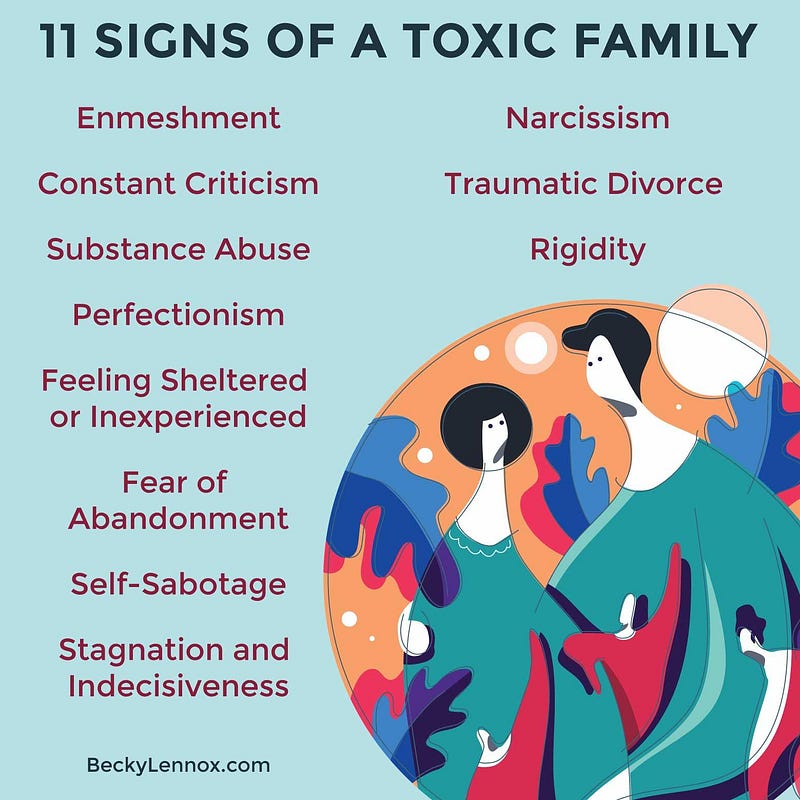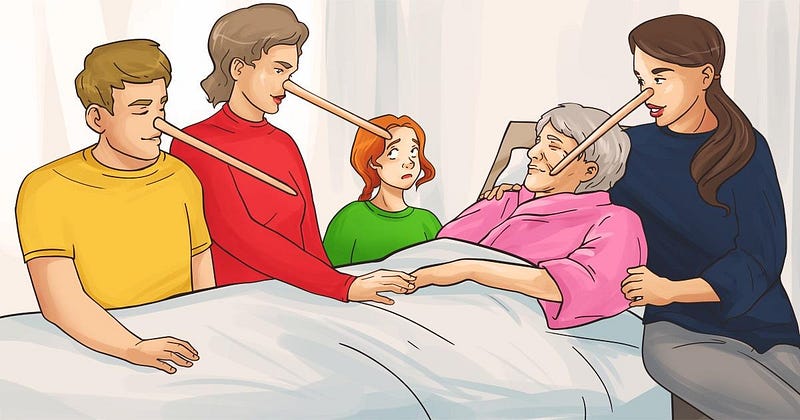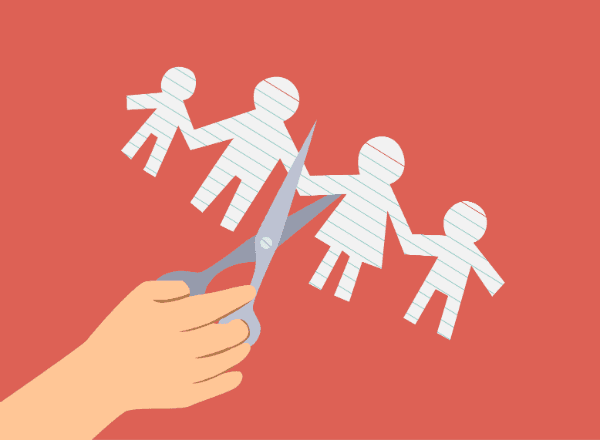Not-So-Modern Family: Understanding Toxic Families
On my twelfth unhealthy rerun of Modern Family, I’m beginning to understand why I’m so hooked on this show. Apart from its humour and…
On my twelfth unhealthy rerun of Modern Family, I’m beginning to understand why I’m so hooked on this show. Apart from its humour and charm, Modern Family made me realise all the things I was missing from my family. Sure, it is just a show which does not depict real-life events but watching how one big happy family of three could get along well with each other despite their differences makes me long for a family like that.
Coming from a completely dysfunctional home, I had to hold my own hands crossing the road (metaphorically of course) while my parents sorted out issues of their own with little to no help from their own family, who ironically were the ones causing these problems in the first place. At first, I believed it was simply my family, but I was wrong. Even though we are the most complex beings with the ability to feel and have emotions, we fall short of doing the one thing in life that is absolutely necessary: loving truly.
Toxicity in Families
To comprehend the fundamental problem of this context we must first understand; what is toxic behaviour in a person? Toxic by definition means deadly or poisonous. A toxic person is anyone whose actions contribute stress and negativity to your life. Toxic people typically have their own problems and traumas to deal with but they act in ways that do not reflect well on them, often upsetting other people in the process.
A toxic family is one in which the members treat one another destructively or poorly. Although it is common for family members to push our buttons, toxic family members are a little different. These people may mean different things, but the one thing they tend to have in common is that they make you feel bad about yourself somehow. Toxicity is almost prevalent in most families. Whether obvious or not, it is almost always easy to tell if one is the toxic one in a family. The next part explains further the signs and how to spot a toxic family member.
Signs of a Toxic Family
There are many ways to identify a toxic family. Below is just a list of common signs in a toxic family:
Enmeshment
Enmeshment is the description of a relationship between two or more people in which personal boundaries are permeable and hazy. This mainly happens on an emotional level in which two people feel each other’s emotions, or when one family member has an emotional upswing and the other one does as well.
Strong and healthy boundaries are necessary for a healthy relationship. These boundaries between two people relate to their emotional, physical, financial, and spiritual states. Boundaries are established early on when parents attempt to foster a safe and structured environment for their kids. Families with toxic dynamics normally lack these boundaries, leading to invasion of privacy and oversharing of family information with others.
Constant criticism
Have you ever been told that nothing you accomplished was good enough regularly? Toxic family members may be quite detrimental — whether passing judgement on our work, appearance, or how we handle household duties. Unfortunately, this type of negativity can be highly influential.
The more a child is berated, the more likely it is for them to shun close relationships. Loved ones often get away with their criticism while people dismiss it as overprotectiveness or concern. However, the effects of this high pressure can be detrimental to that person. Their self-esteem may suffer greatly if they believe that they are a bad person as a child. A great deal of humiliation might stick with them for years.
Substance abuse
A family member’s drug or alcohol addiction can hurt the entire system. Substance abuse is often associated with issues relating to denial, enabling, and unstable mood swings. It also corresponds to money problems and the law, which could create even more complications for everyone. Children who are raised by alcoholic parents more often than not struggle with the same compulsive behaviours as people who battle substance abuse are not able to be present for their loved ones, physically or emotionally.
Perfectionism
Perfectionism is a result of toxic family dynamics. Perfectionists place more value on accomplishment rather than who they are as a person. Hence, they tend to be overly critical of themselves (and occasionally of other people). Perfectionists are highly regarded for their behaviour and people often look up to them because of their accomplishments. They may be seen as the star of the family.
But perfectionism comes at a high price. One may feel a profound sense of emptiness, and it can be challenging to accept that mistakes are an inevitable part of growth.
Feeling sheltered or inexperienced
Fear of the outside world may be a product of the family system. Even if it is in their best interest, some families shield loved ones from the burden of life. In this sense, they will do anything and everything for their children. Children who grow up in this kind of environment may struggle with issues as such in their adulthood:
Overwhelming ‘adult tasks’ such as paying bills or making appointments
Reaching out to parents instead of confronting the problem
Consistently relying on family for money
Indecisiveness
Immaturity at work, school or in relationships
Fear of abandonment
Abandonment can either be real or perceived. In actual cases of abandonment, the child is disregarded by the caregiver. This can happen through instances of neglect, where the caregiver is too preoccupied to fully attend to the child’s needs. On the other hand, perceived abandonment is when caregivers often threaten to leave. Even if they do not follow through with their threats, the child learns that one wrong action will lead to them being alone. Likewise, some caregivers withdraw emotionally instead of physically leaving, which is just as upsetting as an actual absence.
Self-sabotage
Self-sabotage is a challenging paradigm to understand. It seems paradoxical to jeopardise a good fortune with seemingly careless decisions, but self-sabotage is usually a sign of a toxic upbringing. It happens when one does not believe they are worthy of love, success, or good things.
Self-sabotage comes in many different forms. For instance, one might try to start losing weight. But after a few days of eating salads and drinking plenty of water, they decide to reward themselves with a few slices of chocolate cake. Self-sabotage maintains feeling good enough as the status quo. It keeps one exactly where they believe they should be, rather than venturing into unknown terrain.
Stagnation and indecisiveness
Stagnation is a sign of toxic families. There are a few possible causes for this. In some cases, children are so accustomed to having their parents decide everything for them. Since they never needed to do anything in life, they find the idea of doing intimidating.
Other times, one could have a hard time dealing with the thought of failure or struggle. It can be daunting to venture out alone and take risks. The uncertainty acts as a buffer. It is safer to not know the proper course of action rather than to make an executive decision.
Narcissism
A family usually suffers when someone in the family has a narcissistic personality disorder. A mental health problem known as narcissistic personality disorder is characterised by an overinflated ego and a disregard for the feelings and needs of other people. Narcissists have trouble controlling their emotions, which causes them to become erratic, angry, and demanding. Children of narcissists may experience the following challenges as they grow up:
Lack of real identity.
Inability to set boundaries.
Excessive guilt or shame over their family dynamic.
Fear of change.
Dating and befriending other narcissists.
Coping with ‘escape behaviours’ like drugs or alcohol.
Extreme people-pleasing tendencies.
Traumatic divorce
According to research, between 40 and 50% of marriages in America end in divorce. Divorce itself is not always toxic. In many situations, it is the wisest decision a couple can make especially if they have trouble getting along.
However, some divorces can be very traumatic and brutal, and these issues are exacerbated when children are involved. In the best-case scenario, parents try to retain a sense of dignity and regard for their kids’ welfare. Even if they are no longer in love, they make an effort to keep their relationship strong. But when the parents refuse to do so, everyone else will end up suffering.
Rigidity
Some dysfunctional families have incredibly strict standards for how their family members should think, behave, and feel. Individuality has very little to no room. It becomes problematic if one expresses an idea that differs from their family’s. People in these family systems are always humiliated for their individuality rather than embraced.
Toxic Family Dynamics
Our childhood can have a significant impact on the kind of person we end up being in the future. While psychologists argue about whether nature or nurture plays a greater role in developing personality and behaviour, it is clear that one’s family and upbringing shape the character of a person. People who grew up in toxic families might face struggles during their adulthood that people who were raised in healthier environments do not relate to.
No one is free from occasional quarrels with their family. Dysfunctional family dynamics can lead to problems later in life such as increased aggression and trouble with anger management. Other issues include anxiety, and difficulty forming and maintaining relationships with others. Understanding how childhood affects emotions and decisions as an adult helps navigate life peacefully and confidently. Processing and overcoming a difficult childhood may take months or years of effort in therapy (not to mention the thousands that are spent in therapy). Unfortunately, that is the price one pays for being born into a dysfunctional family.
How to Cope With/Move On?
It is easier said than done, but the only way to navigate through life with toxic families is either by coping with or moving on.
Recognising toxic family dynamics is the first step in taking control and creating healthy family practices. The following are the three most effective ways of dealing with toxic family members that might be a little challenging:
Confront Them
Confrontation is not everyone’s best suit. However, each family member should be given an opportunity to share their thoughts about the dynamics of the family and what they feel could make things better. This should be done without the interruption or criticism of other family members. As soon as a person exhibits toxic behaviours, confront them. Call them out on any lies or inconsistencies and tell them that the way they behave is not appreciated.
Set Stricter Boundaries
Define exactly what behaviour is appropriate for the family and what is not by establishing healthy boundaries. Make it abundantly clear to each family member that behaving overly dramatic or spreading rumours about other members will not be tolerated. Compromise will not make everyone happy, but it can help everyone realise what they all want, which is a step in the right direction for a healthy family dynamic.
Cutting Them Off
If attempts to resolve toxic behaviour among family members are to no avail, it is high time to let them go. Sometimes there is nothing that can be done but to stand up for oneself and move on. No one wants to cut ties with a loved one when emotional and physical well-being is at risk, but it is a necessary step. Taking some time away from the toxic person will give one the chance to think clearly and decide the best course of action. A break from communication and negative interaction is sometimes all a family needs to realise that changes must be made.
Literally, Moving On
If we could, we would undoubtedly pick the people we would want to grow up with. We would make our best and closest friends our siblings, our role models or likeable figures our parents and people we generally get along with our aunts and uncles. We would bring all our favourite people together to make one big happy family. But that is just a wonderful imagination. That is simply not how life is.
Dealing with toxicity should be a skill everyone needs to master at some point in their lives. We cannot change the family we were born into; all we can do is strive to make the most of it and attempt to prevent passing on the same habits to the next generation. However, looking on the bright side; it does, in some way, help a person become the strongest version of themselves. On the plus side though, it does, in some way, help a person become the strongest version of themselves because of all the trauma and experiences they had to endure as children.
[Written by: Balvin Dhaliwal. Edited by: Suhana Kabeer]





